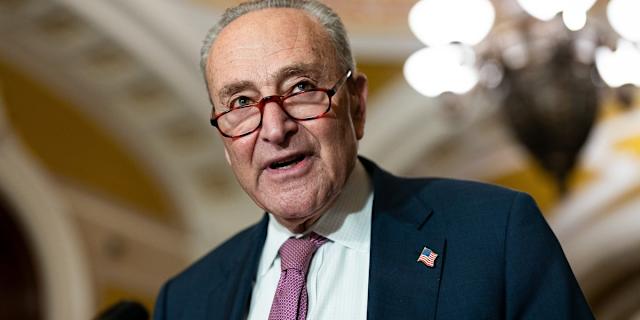Senate Minority Leader Chuck Schumer and Democratic leadership are preparing for a confrontational approach with President Donald Trump over upcoming government funding negotiations, placing significant political capital on a shutdown standoff centered around healthcare subsidies.
With federal operations potentially halting without congressional action, Democratic leaders are demanding Republican commitment to billions in enhanced Affordable Care Act subsidies set to expire at year’s end. This aggressive stance represents a calculated risk that could either force meaningful concessions or backfire spectacularly.
“Donald Trump would rather shut down the government than even talk to Democrats about lowering the cost of health care for Americans,” Schumer declared Friday, establishing the party’s combative tone.
Internal Democratic Tensions
While party leadership projects unified determination, behind-the-scenes conversations reveal significant anxiety about potential consequences. Some Democratic members worry about lacking a viable exit strategy if Republicans refuse to negotiate, fearing they could ultimately capitulate without achieving meaningful concessions.
One Democratic lawmaker close to leadership acknowledged the uncertainty surrounding their approach: “I can’t tell you if it’s gonna be a good play or a bad play on shutting it down. The point is, nothing else has worked to stop their momentum. You gotta throw some tacks in the road.”
Other Democrats express concern about potential backlash if Trump administration begins restricting federal resources like food assistance programs while blaming Democrats for service interruptions. A senior aide to a Democratic centrist warned, “There’s no way to play this shutdown game and win.”
Republican Positioning and Response
Republican leadership maintains that Democrats’ healthcare demands represent unreasonable additions to straightforward funding legislation designed to maintain government operations through late November. Senate Majority Leader John Thune dismissed Democratic proposals, stating plainly: “Looks to me like it’s this or a shutdown.”
House GOP Whip Tom Emmer characterized Democratic healthcare demands as ignoring November election results: “These guys just didn’t listen to the voters last November.”
Republican sources suggest they believe Schumer ultimately wants to find compromise solutions, though formal negotiations remain stalled. Some Republicans view recent failed Senate votes as positioning maneuvers rather than genuine shutdown threats.
Strategic Calculations
The confrontational approach represents a significant shift for Schumer, who faced intense party criticism earlier this year for helping maintain government operations without extracting Democratic concessions. This time, he argues circumstances have fundamentally changed: “the world is totally changed, and the American public has seen the damage the Republicans are doing.”
House Minority Leader Hakeem Jeffries has emerged as a strong advocate for maintaining firm positions against Republican proposals. Both leaders sent letters Saturday demanding presidential meetings, though Trump expressed skepticism about productive dialogue while indicating willingness to meet.
Many Democratic members view this funding fight as their primary leverage opportunity against Trump’s agenda, despite acknowledging shutdown risks. Representative Ro Khanna suggested Schumer learned from previous experiences: “I think he saw the consequences [of] what happened to him in March.”
Uncertain Outcomes
Both parties acknowledge lacking clear resolution pathways without significant position changes. Republican leaders insist they need at least seven Senate Democratic votes for any funding measure, while Democrats refuse supporting current GOP proposals.
Some Democrats remain hopeful for side agreements on healthcare subsidies separate from funding legislation, though such arrangements could anger House Democrats who distrust leadership after previous compromises.
Progressive Democrats are actively pressuring Schumer to maintain firm positions, with reports suggesting Representative Alexandria Ocasio-Cortez might consider challenging him in future primaries—speculation she declined addressing directly.
Political Stakes
The shutdown standoff represents Democrats’ attempt to demonstrate opposition effectiveness while lacking institutional power. Success could establish precedent for future negotiations, while failure might reinforce perceptions of minority party weakness.
Senator Peter Welch argued Republicans broke traditional precedent by refusing bipartisan negotiations: “In every other situation we’ve had here, there’s been a negotiation… It’s a new world with Trump, and he probably does want a shutdown.”
As the October 1 deadline approaches, both sides continue blame attribution while lawmakers prepare for potential extended negotiations. The ultimate resolution will likely determine Democratic strategic approaches for remaining Trump administration interactions and establish parameters for future funding battles.
Democratic unity remains publicly strong but privately uncertain, with leadership acknowledging unpredictable outcomes while maintaining commitment to healthcare priorities over government operations continuity.




